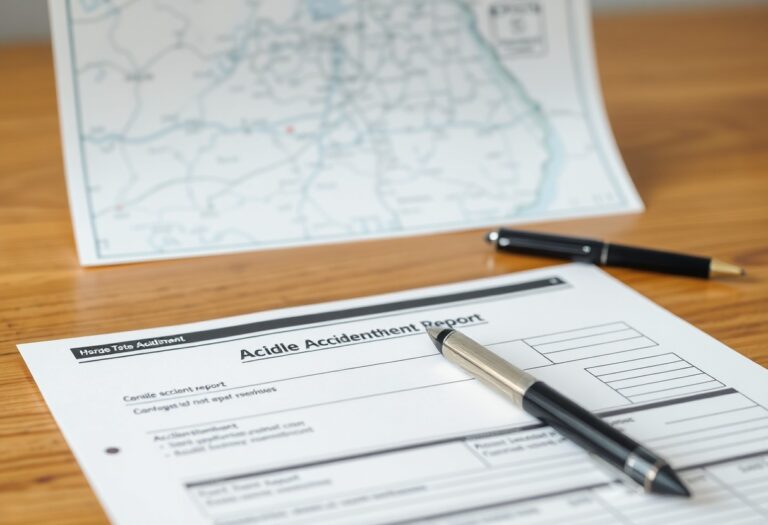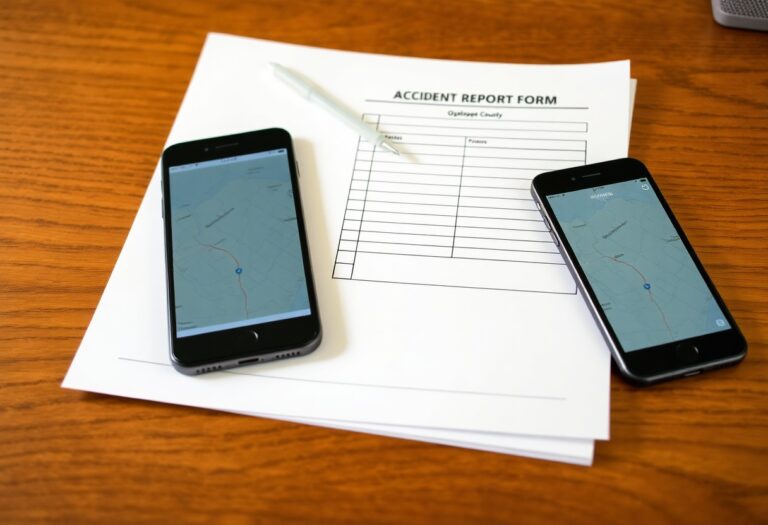Many residents may find themselves needing to access a crash report in Lehigh County, Pennsylvania, whether for insurance purposes or personal records. Understanding the process is crucial for ensuring that you get the correct documentation efficiently. Here, you will learn the specific steps to retrieve your crash report, the necessary fees that may apply, and the contact information for local authorities who can assist you. This guide will empower you to navigate the system confidently and secure the information you need.
The Importance of a Crash Report
Your crash report serves multiple important roles following an incident on the road. This official document details information about the accident, including the involved parties, witness accounts, and the circumstances leading to the event. Having this report on hand not only aids in insurance claims but also provides critical insights for future legal considerations. Obtaining a copy ensures you are equipped with the right information to navigate subsequent processes effectively.
Legal and Insurance Implications
Access to your crash report is vital for any legal proceedings and insurance claims you may need to file. Insurance companies frequently require this document to process claims, verify details, and assess liability. Without it, you might face delays or denials when seeking compensation for damages or injuries sustained in the accident. In legal scenarios, the report can serve as evidence to support your case, making it indispensable in determining fault or negligence.
How Crash Reports Influence Liability
Your crash report plays a significant role in establishing liability in road incidents. It often contains detailed descriptions of the accident scene, diagrams, and findings from law enforcement, all of which contribute to determining who is at fault. This information can be crucial if disputes arise regarding the sequence of events and the actions of each driver involved. By examining contributing factors listed in the report, insurance adjusters and legal professionals can come to informed conclusions that directly impact any claims or legal outcomes.
In many cases, police officers note specific details in the crash reports that can shift liability. For instance, if the report indicates that one driver was exceeding the speed limit or failed to obey traffic signals, these factors can directly influence the assignment of fault. Moreover, witness statements gathered at the scene are often transcribed, lending further credibility to the account of the events. As a result, leveraging this information can significantly impact any legal judgments or settlements that come your way.
Navigating Lehigh County’s Reporting System
Understanding how to navigate Lehigh County’s reporting system is imperative for efficiently retrieving your crash report. The process involves knowing where to file a report, accessing online resources, and understanding the various channels the county provides for obtaining information related to traffic incidents.
Where to File a Report
If you need to file a crash report in Lehigh County, you can do so at your local police department or the Pennsylvania State Police. Depending on where the accident occurred, you may need to determine the correct jurisdiction to ensure your report is officially processed. Each department handles reports differently, so it might be useful to call ahead or visit their website for specific instructions.
Accessing Online Resources
Your easiest path to retrieving a crash report may lie in leveraging online resources available through Lehigh County’s official websites. These platforms typically provide forms, guidelines, and contact information that streamline the reporting process, making it more efficient for you.
Online resources in Lehigh County, such as the official County website and the Pennsylvania State Police page, offer vital information on filing crash reports. You can find downloadable forms for incident reports, FAQs about the reporting process, and even links to local police departments’ websites. Utilizing these resources allows you to save time and avoid unnecessary trips, ensuring that you have access to everything you need from the comfort of your home. Additionally, many local jurisdictions may provide case status updates and further information directly online, enabling you to track your report’s progress easily.
Step-by-Step Guide to Requesting Your Crash Report
When you need to obtain your crash report in Lehigh County, follow these straightforward steps to ensure a smooth process. Begin by accessing the required forms and information from the local authorities, then verify your eligibility before submitting your request. Below is a breakdown of each step in a simple table format:
| Step | Description |
|---|---|
| 1 | Gather necessary personal information and details about the crash. |
| 2 | Complete the request form available from the police department or online. |
| 3 | Submit your request via mail, fax, or in person, depending on the department’s requirements. |
| 4 | Pay associated fees using approved payment methods and await processing. |
Required Information and Documentation
To successfully request your crash report, you’ll need to provide important details such as your driver’s license number, the date and location of the accident, and the names of involved parties. Additionally, documentation like your insurance information and any police report number can expedite the process. Having all this at hand minimizes delays and confusion.
Fees and Payment Methods
Obtaining your crash report in Lehigh County typically incurs a fee that may vary depending on the method of retrieval. Most agencies charge a nominal fee for copy requests, usually around $15 to $20. Acceptable payment methods often include credit/debit cards, checks, or cash for in-person requests.
For efficiency, online payment options may be available, making it easier to fulfill fees without unnecessary trips. If you opt for mail requests, ensure your check is correctly filled out to avoid processing delays. Some departments also allow electronic payment through their website, streamlining the entire process.
Timeframes and Expectations: How Long It Takes to Retrieve Your Report
The timeframe for retrieving your crash report can vary, but generally, you can expect to receive it within a few days to several weeks, depending on the specifics of the incident and the processing methods utilized by the reporting agency. While most reports are accessible relatively quickly, delays due to various factors can extend this timeframe. Understanding what to anticipate can help you plan accordingly.
Average Processing Times
Typically, crash reports are processed and made available within 5 to 10 business days after the incident. If the crash was more complex, involving multiple vehicles or fatalities, this timeframe could increase. Knowing the average timeframe lets you better manage your expectations as you await your report.
Factors that Could Delay Retrieval
Several elements can impede timely retrieval of your crash report. Issues such as ongoing investigations, high volume of requests, or incomplete documentation can all slow down the process. Additionally, if the accident involved police departments other than Lehigh County’s, coordination between agencies may take longer. Any delays in the processing of your report can lead to frustration, so being aware of these factors can help ease your concerns.
- Ongoing investigations
- High volume of requests
- Incomplete documentation
- Coordination with other agencies
Each of these factors can contribute significantly to the length of time it takes to retrieve your report. For instance, if you were involved in a multi-car accident and are awaiting statements from different law enforcement agencies, this could lead to additional delays. Any unforeseen circumstances can further complicate matters, so staying proactive in following up can help enable your retrieval process.
- Multi-car accidents
- Statements from multiple agencies
- Legal issues
Common Pitfalls and Misconceptions
Many people fall into common traps when trying to retrieve their crash reports. A frequent misunderstanding is that all reports are automatically available to the public, or that they can be obtained without proper identification. Additionally, some assume that requesting a crash report will result in immediate access, which often isn’t the case due to processing times and fees.
What Doesn’t Affect Your Crash Report
Several factors do not affect your crash report, such as the type of vehicle involved or the weather conditions at the time of the incident. Both non-relevant details like these and emotional sentiments do not influence the factual contents of the report. Your report strictly documents the facts as they occurred.
Clarifying Misunderstandings About Public Access
A misconception often arises regarding public access to crash reports. While many assume that all details are openly accessible, some sensitive information may be redacted or restricted due to privacy laws. Generally, you can access your own crash report, but access to others’ reports might require proper legal justification or consent.
Understanding public access limitations helps clarify what you can obtain. The Pennsylvania Open Records Law governs this access, stipulating that certain data, such as personal information and accident specifics, may not be disclosed to protect individuals’ privacy. Be prepared for the possibility that some content may be unavailable or censored when you request a report that does not belong to you. This ensures that sensitive information remains confidential, adhering to legal standards while still allowing legitimate inquiries into crash incidents.
Conclusion
On the whole, retrieving a crash report in Lehigh County, Pennsylvania, is a straightforward process when you know the necessary steps. You should gather relevant information such as the date and location of the incident and familiarize yourself with the specific agencies involved. By following the outlined procedures and utilizing the resources available, you can efficiently obtain the documentation you need for insurance claims or legal matters. This knowledge empowers you to navigate the process smoothly and effectively in times of need.













